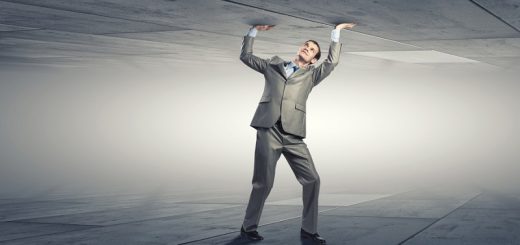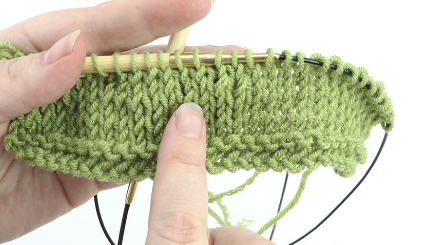How do emotions affect our body?
Can you describe what emotions are? According to the Treccani Encyclopedia, it is possible to define emotion as an “inner process aroused by an event-stimulus”: this is what makes it different with respect to a feeling, which is a subjective experience linked to feeling even without the presence of a triggering stimulus. The emotions we experience are linked to a physiological change associated with a response from the nervous system, to which hormonal and electro cortical reactions are linked. But do you know emotions affect our body?
Emotional stimuli affect the body with changes in heart rate, blood pressure, respiration and even body temperature. It is something that each of us can realize because when an emotion overwhelms us it is not just a psychological experience: we live this condition with the whole body and that is why today, thanks to the research of recent years, we are discovering valuable information on how the emotions affect our body of the organs by influencing in an important way the well-being of the person.
What are the emotions?
The American psychologist Paul Ekman, who since 2009 has been considered among the 100 most influential people in the world according to the famous Times Magazine ranking, is in Papua New Guinea in the early 1970s, where he studies the facial expressions of an isolated indigenous tribe. Together with Wallace V. Friesen, Ekman will identify six main emotions, later becoming notes in psychology as “primary emotions”.
- Anger
- Disgust
- Sadness
- Joy
- Fear
- Surprise
Yes, the film Inside Out, which saw Paul Ekman collaborate alongside the writers, taught us that there are five fundamental emotions. In reality, the opinions are not unique: in the flower designed by Robert Plutchik, the primary emotions are eight. In the following years, Ekman will add further states to the basic emotions, including fun, contentment, contempt, pride, embarrassment, shame, excitement, guilt.
Rich in nuances, the human soul lives in a complex labyrinth of emotional experiences, whose expression can be more or less conscious, influenced and shaped by rules at a social and family level. The discourse on emotions continues today because these gradations, not easy to catalog, mark the elusive measure of our inner life.
The neuroscientist Joseph E. LeDoux, who for years has been studying the mechanisms of in relation to fear, in his book ‘The emotional brain’ explains, for example, that fear takes effect over time. It represents an adequate innate response in the face of a danger and, in retrospect, can move towards situations that are actually harmless resulting in associated neutral stimuli for conditioning. The stimulus disappears, but the emotion continues to happen and shake us: we enter the universe of pathological anxiety.
You may also like: What is lineart
Can you recognize your emotions?
We know what they are called, yet recognizing the emotions we experience is not easy at all. For example, anger and sadness seem very different in appearance, yet in everyday reality … they may hide one behind the other.
How many times do you happen to get angry suddenly, in an irrational and uncontrolled way throwing in fear those who witness our outbursts of anger? The anger, connected with an overwhelming sense of frustration, interfaces with the weight that oppresses inside and makes a breach in a hidden place of ourselves: after all, we feel hopeless, not listened to and faced with an impossible change. At times like these, the feelings we feel we cannot manage risk overwhelming us.
Franco Berrino, doctor and epidemiologist, author of Twenty – one days to be reborn together with Daniel Lumera and David Mariani, explains: “There are no positive or negative emotions; their value depends on the intensity and individual sensitivity to what you try. Anger, for example, is profoundly therapeutic and liberating, if expressed in the correct manner and context, just as love can be an alienating experience and happiness can turn into madness and exaltation. The emotional quality depends on the intensity, on the discernment and on the level of awareness through which we live the emotional sphere”.
What can we learn from emotions? Here is what the authors of Twenty – one days explain to be reborn about the emotions considered negative. It is important to remember that an emotion is never neither negative nor positive: we consider it an emotion and we often do it based on what we experience or what happens in our life while we live it.
In reality, emotions can express a block, something that pushes us and holds us back. The true message is submerged and needs to be traced, to come to the surface, that’s why keeping us in tune with the body means becoming able to decipher the manifestations and grasp the signs: what are they communicating and what sense do they have for our life?
You may also like to know about types of attraction
– Anger
Origin: feeling of powerlessness
What is it hiding? Determination
Message: become aware of your feeling of helplessness, what can you do to get rid of it?
– Fear
Origin: negative thoughts about a future event
What is it hiding? Love
Message: don’t be afraid of being afraid. In which part of the body do you feel it? Starting to share our fears means exposing deep fear
– Shame
Origin: inadequacy
What is it hiding? Self-esteem
Message: in which body parts do I feel wrong? Make a list of your most important successes; relive them with your mind.
– Sense of guilt
Origin: negative judgment on something we have done
What is it hiding? Pardon
Message: let the past go.
– Sadness
Origin: negative judgment on a past or future event
What is it hiding? Gratitude
Message: embrace change and accept that existence is a continuous flow
– Anxiety
Origin: fear of losing something
What is it hiding? Peace
Message: learn to let go
– Jealousy
Origin: sense of possession
What is it hiding? Transcendence
Message: loving is the opposite of possessing
Emotions and Body
According to the principles of ancient Traditional Chinese Medicine, every emotion finds correspondence with the different parts of the body influencing the health of each organ. This concept actually originated in ancient times and is found in different cultures.
Today, thanks to increasingly numerous brain studies, neurosciences invite us to reconsider the role of emotions. We are all one. The old idea of a division between mind and body falls, we find ourselves at a turning point.
– Joy affects the heart
In ancient Egypt, the heart was considered the seat of life. The joy, which in traditional Chinese medicine is linked to this organ, immediately brings to mind the plunge into the heart that we experience in moments of great intensity, yet this energy can also become a state of over-excitement.
Shen, fire, resides in the heart: it is the living part of us, able to express our relationship with the world in a state of balance between inside and outside. When we feel agitated, “the heart beats faster” and thoughts are difficult to put in order. How often do we feel we are victims of an emotion that imprisons the heart?
– Anger affects the liver
The liver produces bile, which in turn promotes the process of absorption of fat in the intestine. That, through the process of gluconeogenesis the liver not only takes care of the nourishment of the cells, metabolizes what enters our body, eliminates and destroys waste. Its valuable function as a symbolic level filter makes one think of the delicate balance between the entry of what is good for us and the output of what is not needed.
“I didn’t really digest this thing,” we say in reference to events or people we struggle to accept. In the digestive process, bile emulsifies fats and helps make them soluble in water. It happens on the physical plane, but on a psychological level, something very similar happens: we need time to metabolize, to dissolve what is likely to be indigestible. The liver teaches us a constant work of balance: on the one hand, the choice of letting in what can contribute to a state of wellbeing, on the other the ability to discriminate what is not.
Anger can be a real poison and when it macerates for years slowly it poisons our thoughts, invades the mind like a fixed nail. However, let us not forget that anger, strongly linked to survival, and is also the response dictated by desperation, the extreme attempt at defense and what can sometimes bring us back to deep desires, stimulating the courage of action.
Thanks to the work of the liver the body can adapt to the environment, yet there are poisons that we must learn to avoid if we want to survive. Learning how to metabolize life events and transform them so that they become nourishment is a long-term process that is learned day by day.
How can we do to release the energy of anger in a creative way? Start by telling you honestly what makes you feel frustrated and powerless: accepting what you feel is the first step to stop feeling that burden on your stomach.
– Fear affects the kidneys
In the Huang Ti Nei Ching Su Wen, a treatise that contains the millenary wisdom of Chinese medicine, it is written that when we are afraid, energy does not circulate anymore. Terror blocks the circulation of IQ, the vital energy: in fact, we feel so paralyzed. The kidneys help filter blood, eliminate waste and regulate blood pressure. In involuntary urination, manifestation of a situation in which the level of fear is very high, we find the bond with the kidneys.
Fear, as well as anger, constitutes an adaptive response of the organism strongly linked to survival. In Yoga this area of the body is connected to Muladhara, the first chaka, located at the base of the spine, while the second center, Svadhishtana, is in correspondence with the sacral region, above the genitals.
How rooted do we feel? The first chakra, linked to the Earth, tells us about the security needs of every human being and our survival instinct: fear is linked to physical survival, but also to our fear of being abandoned and hurt on a psychological level.
– Sadness hits the lungs
According to traditional Chinese medicine through the heart, sadness affects the lungs: the organ that allows us to breathe and continue to stay in life. The ideogram Po evokes a dark and submerged part, the territory of the memories removed, the shadow that we would not like to see. In the Metamedicina approach of Claudia Rainville the lungs represent life. When the joy of living fails, it is as if a deep tiredness enveloped us.
Sadness can be related to an excessive mental effort: it happens when we torture ourselves with analyzes and reflections that risk becoming obsessive thoughts. According to the principles of Chinese medicine, a state of excessive worry can generate an imbalance in the spleen. In a fast-paced world our mind also seems to have become incapable of stopping: the tendency to judge and judge ourselves, along with overthinking, continuous brooding, expectations of the future and melancholy of the past, block us in a quagmire in which we sink slowly.
Yet, learning to see our mistakes as part of what we are learning from existence transforms the attitude of judgment into the path to change: the acceptance that life is a constant, unpredictable and moving stream until our last breath.













